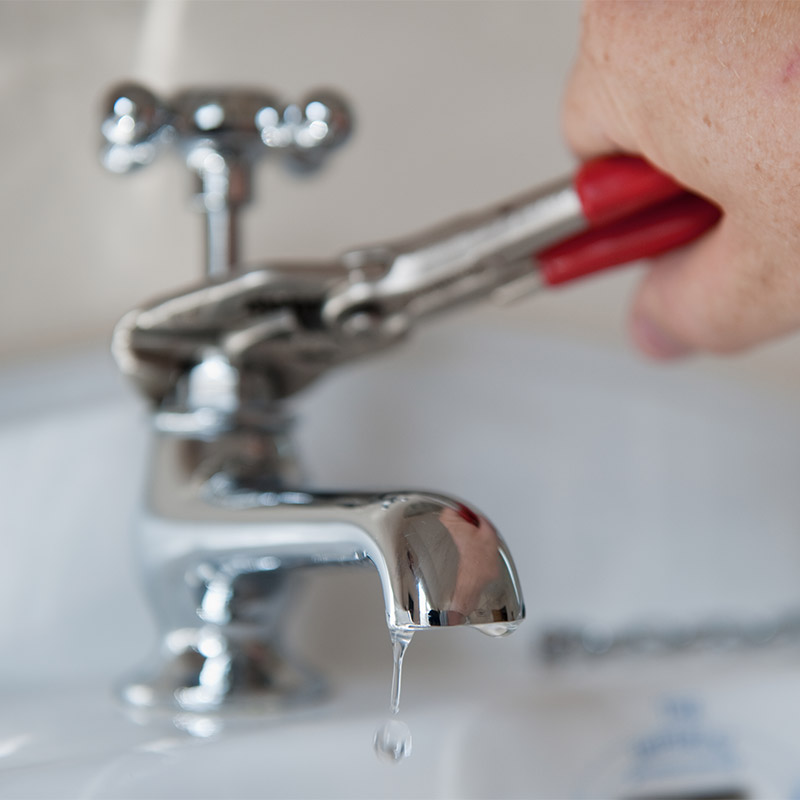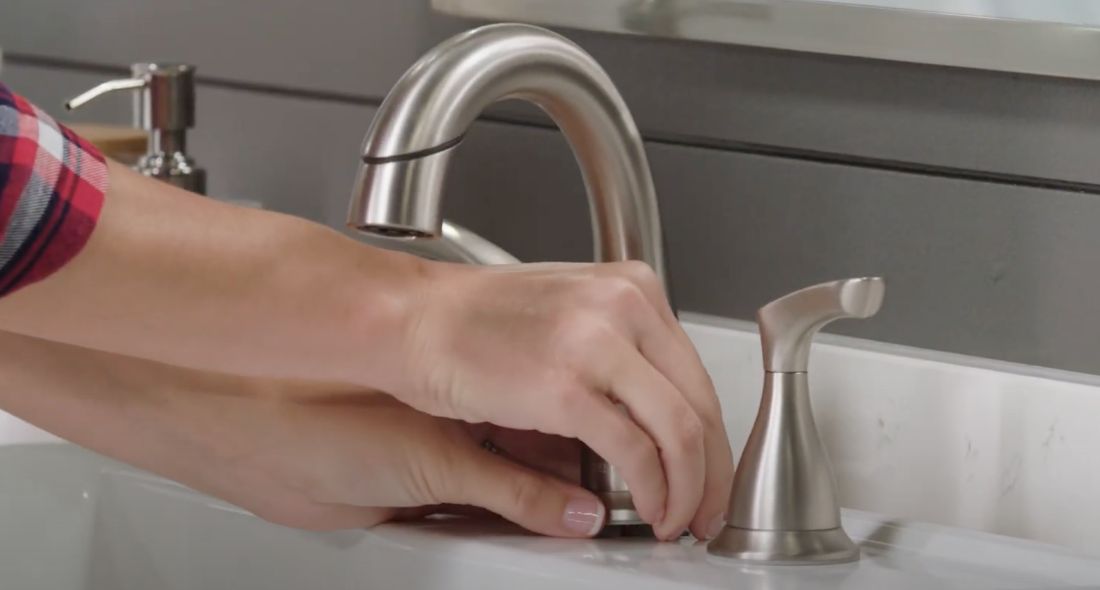What It's Crucial to Repair a Leaking Faucet
What It's Crucial to Repair a Leaking Faucet
Blog Article
What are your opinions on Leaky Faucets: Why They Happen & What to Do About Them?

Trickling taps might appear like a small inconvenience, however their effect surpasses simply the annoyance of the sound. From drainage to incurring unnecessary monetary expenses and wellness threats, ignoring a leaking faucet can cause numerous effects. In this article, we'll delve into why it's crucial to address this typical family problem without delay and effectively.
Wastage of Water
Environmental Impact
Dripping faucets contribute significantly to water wastage. According to the Environmental Protection Agency (EPA), a solitary tap trickling at one drip per secondly can waste more than 3,000 gallons of water per year. This not just pressures water sources yet additionally influences ecological communities and wild animals dependent on them.
Financial Prices
Raised Water Bills
Beyond the ecological influence, dripping taps can inflate water expenses significantly. The collected wastage gradually equates into higher utility expenditures, which can have been stayed clear of with timely fixings.
Possible Property Damages
Additionally, long term dripping can bring about damage to components and surfaces surrounding the tap. Water accumulation can create discoloration, deterioration, and also architectural concerns if left ignored, resulting in extra repair service prices.
Wellness Issues
Mold and Mold Development
The continuous presence of moisture from a trickling tap develops an excellent environment for mold and mildew development. These fungi not only endanger interior air high quality however likewise pose health threats, especially for individuals with respiratory problems or allergic reactions.
Waterborne Illness
Stagnant water in leaking taps can become a breeding place for bacteria and various other virus, boosting the threat of waterborne illness. Impurities such as Legionella bacteria grow in stagnant water, possibly bring about significant health problems when ingested or breathed in.
Do it yourself vs. Specialist Repair
Pros and Cons of Do It Yourself Repair Service
While some might try to repair a trickling tap themselves, do it yourself repairs include their own set of obstacles. Without proper understanding and tools, do it yourself attempts can worsen the problem or lead to insufficient repair work, extending the issue.
Benefits of Employing an Expert Plumber
Hiring an expert plumber ensures that the underlying reason for the dripping tap is resolved successfully. Plumbing technicians have the experience and tools to diagnose and repair faucet concerns efficiently, saving time and lessening the risk of more damage.
Step-by-Step Overview to Repairing a Dripping Tap
Tools Called for
Before attempting to repair a dripping tap, collect the essential devices, including a flexible wrench, screwdrivers, substitute components (such as washing machines or cartridges), and plumber's tape.
Usual Faucet Issues and Their Solutions
Identify the kind of tap and the specific problem causing the drip. Usual problems consist of damaged washers, rusty shutoff seats, or faulty O-rings. Describe manufacturer directions or on-line tutorials for detailed assistance on fixings.
Safety nets
Routine Upkeep Tips
To stop dripping faucets, carry out regular upkeep such as cleansing aerators, evaluating for leaks, and replacing worn-out components promptly. Additionally, take into consideration mounting water-saving tools or upgrading to much more effective fixtures.
Relevance of Prompt Services
Resolving trickling faucets as soon as they're seen stops further water waste and prospective damage, inevitably saving both water and money over time.
Impact on Residential Or Commercial Property Worth
Perception of Well-Maintained Home
Keeping a building in good condition, including addressing upkeep problems like dripping taps, enhances its regarded value and worth amongst possible customers or occupants.
Influence on Resale Value
Residences with well-kept plumbing components, including taps, command higher resale values in the realty market. Dealing with dripping faucets can contribute to a positive impression during property inspections and arrangements.
Environmental Obligation
Private Payment to Preservation
Taking duty for taking care of leaking taps lines up with more comprehensive initiatives towards water preservation and environmental sustainability. Every person's actions jointly make a substantial impact on preserving priceless resources.
Sustainable Living Practices
By prioritizing prompt fixings and adopting water-saving routines, individuals contribute to sustainable living methods that benefit both present and future generations.
Conclusion
Addressing a trickling tap surpasses mere convenience; it's a crucial step toward conserving water, decreasing monetary expenses, and protecting health and residential property. Whether through do it yourself fixings or expert help, taking action to take care of leaking faucets is a little yet impactful method to advertise liable stewardship of resources and contribute to a healthier, a lot more sustainable future.
How to Fix a Leaky Faucet: Step-by-Step Repair Guide
A leaky faucet may seem like a simple annoyance, but if it's not fixed promptly, that leak could cost hundreds to potentially thousands. From water damage to mold, mildew, and high water bills, even a tiny leak can be catastrophic if left unattended. Damage like this can even affect the overall value of your home, so it's important to take the right approach for leaky faucet repair. You may need the help of a plumber in some cases, but we've got a few tips you can try on how to fix a leaky faucet before calling the pros.
Four Faucet Types
When you're learning how to fix a leaky faucet, the first step is knowing what kind of faucet you're working with! There are four common types.
Cartridge Faucets
Cartridge faucets come in one- or two-handled varieties. In one-handled cartridge faucets, hot and cold water combines in a single cartridge. In the two-handled versions, hot and cold water are controlled separately and mixed in the faucet.
Ball Faucets
Ball faucets have a single lever you push up and down to adjust the pressure and rotate to change the temperature. A slotted metal ball controls the amount of water allowed into the spout.
Compression Washer Faucets
They're the oldest type of faucet, but they're still used in many homes — especially older ones. Compression faucets have two separate handles that, when turned, raise or lower the washer that seals a water valve. This valve stops water from flowing through the faucet when it is turned off.
Disc Faucets
Disc faucets rarely need to be repaired due to their maintenance-free design. The water flow is controlled by two discs — the upper one raises and lowers against a fixed lower disc, creating a watertight seal. If your disc faucet starts leaking, you may need to replace the seals or clean residue buildup from the inlets.
Fixing a Leaky Faucet
Step 1: Turn Off the Water
Whether you're learning how to fix a leaky bathtub faucet or how to fix a leaky kitchen faucet, always turn off the water supply to your working area when you're fixing a leak. The last thing you want is a flood added to your list of things to fix.
Look for the shutoff valves below your sink or around the tub and turn them clockwise to stop the water flow. If your faucet doesn't have shutoff valves, you may need to turn off the water for the whole house. Check to make sure it's off by turning the faucet on. If nothing comes out, you're ready to start the repair.
Step 2: Take Apart the Faucet
How you disassemble your faucet depends on the type of fixture you have. You can use a flathead screwdriver to remove the caps on top of the handle or handles for cartridge and compression faucets. Inside, you should see handle screws. Unscrew these with a screwdriver to remove the handle.
Disc- and ball-style faucets will typically have an inlet screw near the handle, and removing that will reveal the interior of the faucet.
Detach the Valve Stem
For cartridge- and compression-style faucets, you'll see the inner valve stem or cartridge once you remove the faucet handles. If you have a compression faucet, unscrew the brass valve stem. If you have a cartridge faucet, pull out the cartridge. If your cartridge has been in place for a while, it may require some tools or extra force to remove it due to mineral deposits.
Examine and Replace Parts
Once you've removed the parts, check them out to confirm what needs to be replaced. You may see corroded rubber washers, O-rings, stems, or cartridges. On a ball-style faucet, check the seats and springs for damage.
If you need to repair a leaky disc faucet, check the inlet and seals on the lower disc.
Once you determine what parts must be replaced, visit your local hardware store. Bring the damaged parts with you to ensure you can purchase the correct components to replace them.
Clean Valves and Faucet Cavity
If you've removed a stem or cartridge, you may notice mineral buildup in the faucet's threads. Use white vinegar to clean the valve seat by soaking it for a few minutes, then scrub it away with a soft toothbrush and rinse with warm water. You can also clean the interior of the faucet in the same way.
Reassemble the Faucet
Once your faucet is cleaned and the required parts have been replaced, it's time to reassemble it. Put the pieces back together and slowly turn the water supply back on. Doing this slowly is crucial because too much initial water pressure can damage the new hardware you've just installed.
https://homewarranty.firstam.com/blog/how-to-fix-leaky-faucet

As a keen person who reads on Why Is It Important To Fix Your Leaking Tap/Faucet?, I figured sharing that topic was really helpful. Liked our posting? Please quickly share it. Let somebody else find it. Thanks for going through it.
Report this page